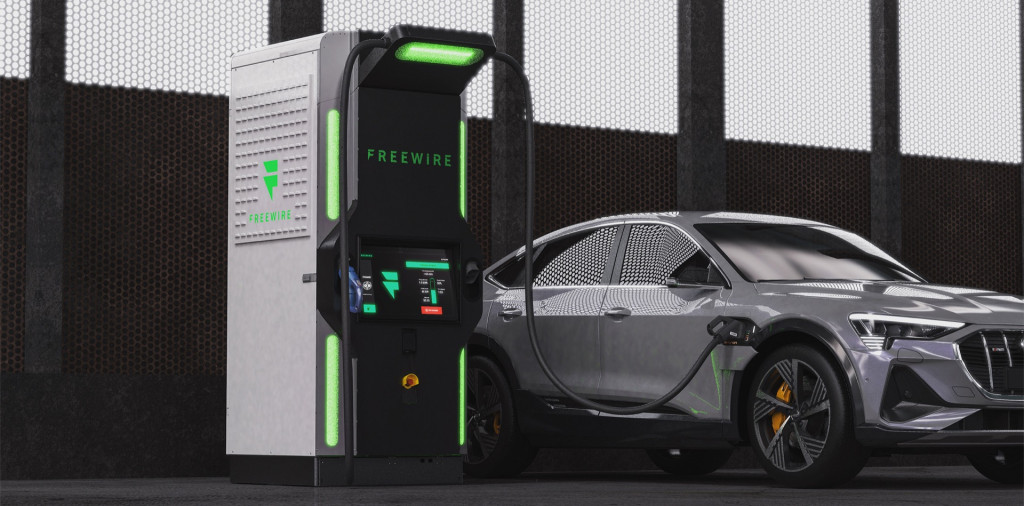Will electric-car drivers be able to find a way to charge up when their day—or their route—doesn’t go exactly according to plan?
It’s a common concern for those new to electric cars, and a pivotal question that could have a dramatic effect on technology adoption and the public’s impression of EVs. And really, it's the new face of range anxiety—oriented more around a failure from infrastructure than from a car that won't hold true. Although there might be adequate infrastructure when everything is up and running, there needs to be a backup plan to help connect the dots on the map when the circuit breaks.
It appears that investors agree. Both SparkCharge and FreeWire, two companies representing some very good “backup plan” ideas for battery-based mobile charging recently reported fresh surges of funding.
FreeWire Technologies, which specializes in mobile fast chargers, recently raised another $25 million in a round led by BP Ventures, ABB Technology Ventures, and Energy Innovation Capital. Volvo Cars invested in FreeWire in 2018, and earlier that year it attracted a $5 million investment from BP.

FreeWire Boost charger
FreeWire efforts initially grew around the Mobi EV charger—a Level 2 charger on wheels—plus the Boost Charger, a DC fast charger unit that employs a battery buffer to work with existing infrastructure and costs 40% less to install than typical fast chargers.
It also has the Mobi Gen unit that’s designed to completely replace diesel generators at construction sites and events.
As FreeWire has pointed out, its solutions are aimed to help overcome inadequacies in infrastructure and be rapid-acting and cost-effective.

SparkCharge modular fast charging system
Another company, SparkCharge, is looking at a solution that’s an order of magnitude smaller but could be just as transformational. It closed on $3.3 million in seed round financing led by Point Judith Capital. That brings the total to $5 million since the startup’s 2017 inception.
SparkCharge’s modular fast-charging system incorporates a battery module with 3.5 kilowatt-hours (3.2 kwh usable) of 18650-format cylindrical cells. Those modules can stack for more capacity, and the system is capable of providing up to 20 kw of continuous power, allowing a maximum current of 40 amps and a maximum voltage of 500V. Broadly speaking, it says its hardware can provide a mile per minute of charging.
The new round of funding will give SparkCharge the means to scale up manufacturing of the modular system and expand development.
SparkCharge sees growth in partnering with various businesses—and perhaps automakers—to combat range anxiety by having a convenient backup plan, in a form that’s modular, reasonably lightweight, and easily transported.

SparkCharge modular charging system
The company explained to Green Car Reports last year that it sees solutions for the technology in roadside assistance, concierge services, or in a form not unlike a pizza delivery, where via an app you could call up an on-demand charge at a specific time and place to give you the boost you need—while you have dinner at an out-of-the-way place, for instance. Or, perhaps, those who might normally charge at work might have a charge delivered to their vehicle at an apartment or condo that lacks charging possibilities.
Rivian is one electric vehicle maker currently working on its own proprietary auxiliary battery solution for its off-road-capable electric trucks—keep in mind the image of jerry cans of gasoline strapped to adventure vehicles.
With removing the barriers for EV ownership is definitely part of the reason both of these solutions exist, removing the anxiety around what might happen could prove the greater value—even for those who are already part of the club.
